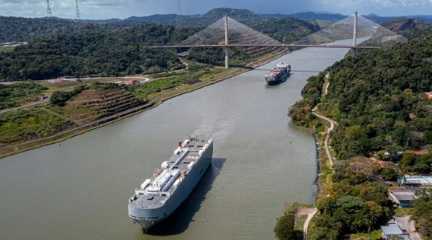
08 Feb 2023; MEMO: Panamanian authorities are set to let Iranian naval ships sail through the Panama Canal, despite concerns expressed by the United States against it.
Following reports that Tehran was sending its naval vessels to the strategic waterway – which accounts for five per cent of global maritime trade – and especially a report by the newspaper, La Estrella de Panama, last month that Iranian warships will be positioned there, Panama gave a positive statement addressing the development.
"Based on the aforementioned regulations, the Panama Canal Authority has the obligation to allow the passage of any vessel that meets all these requirements", citing the ship's need to abide by global safety norms, pay tolls and not to commit any hostile acts.
The move is set to anger Washington, which expressed its opposition to it when US State Department spokesman, Vedant Patel, told reporters at the beginning of this month that it will "continue to monitor for any Iranian plans of naval activities in the Western Hemisphere", as well as continuing "to have a number of tools in our toolbelt available to hold the Iranian regime accountable".
READ: Cuba commends Iran's progress despite sanctions
Patel clarified that Washington will not consider imposing sanctions on Panama or its authorities, but that "we will continue to vigorously enforce our sanctions" on Iran and its affiliates, and that "anybody doing business with a sanctioned entity risks exposure to designation themselves."
Jeb Bush, the former governor of Florida, also penned a Washington Post column last month accusing Panama of helping Iran evade Western sanctions on its oil exports. "Without Panama's support, the Iranian regime would face significant hurdles in smuggling its oil and gas around the world," he wrote.
The US, which built the Canal in the beginning of the 20th century to link the Atlantic and Pacific Oceans and establish a new trade corridor, primarily fears that Tehran seeks to boost its presence in Latin America, especially after years of cultivating political, diplomatic and trade ties with states in the region, such as Venezuela.
Under the Panama Canal Treaty of 1977, the waterway "shall remain secure and open to peaceful transit by the vessels of all nations on terms of entire equality", so far as they abide by the aforementioned requirements. That same treaty handed control of the Canal to Panama in December 31, 1999, ensuring its neutral status.




